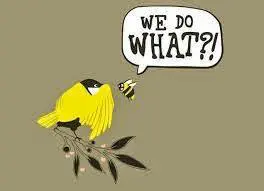Times have changed. Imagining a short 50 years ago it was almost impossible to show a female belly button on TV is nearly impossible when you look at the sex-driven content today’s youth are exposed to on TV, in movies, in ads, on the internet, and literally everywhere else. Sex is indeed a primary motivator of our species, and once the market realized “sex sells” they pushed it at the people until we all became so numb to it that we don’t even notice anymore. How many of you would give second thought to a mild cut-away sex scene on TV or a half-naked billboard? Chances are very few of you would. However, there is someone who notices– your kids. Unfortunately, this change in times forces parents to reevaluate when the right time to start educating their kids about sex. If you start too late, well, it could be too late.
So when is the right time for the sex talk?
Teaching your kids about sex really doesn’t come to one single “sex talk” like people seem to think. There shouldn’t be some coming of age point where you sit down and have one very long and awkward conversation with your child about sex. Rather, it should be a slow and gradual education over time that properly corresponds with your child’s mentality.
Toddlers:
At the toddler age you should start teaching your children about their bodies, their whole bodies. Even at such a young age children need to know what a penis and a vagina are and that they are private. You’ll find your kids naturally show curiosity in their nether regions and this can queue you into some anatomy lessons.
Pre-schoolers/Kindergarten:
Chances are you’ll have some boyfriend/girlfriend run-ins at this age, but they’ll be innocent; hand holding, hugging, maybe kissing. Be sure to talk to your child often, ask them about school and their friends so that when such things begin to develop you’ll know and can jump in with guidance. Talk about things like relationships, love, and kissing. Remember to keep your conversations appropriate for your child’s developmental level. It’s likely you’ll also have to deal with questions like, “Where do babies come from?” at this age. Answer any questions your child has truthfully. Avoid dodging the issue with silly stories. You don’t necessarily have to go into in-depth detail, but tell the truth.
Grade School:
Sometime during grade school or middle school your child will hit puberty. You can choose to address that when it happens, but it’s generally less shocking and confusing for your kid if they have some pre-warning and know what to do when it happens.
Middle School/High School:
This is when sex education in regards to things like protective, STDS, pregnancy, dating, etc. need to be talked about. Talking to you pre-teen or teen about sex won’t make them more likely to have sex, but it will prepare them if they end up doing so. As a parent, you can’t follow your children everywhere. They will be presented with sexual situations. How they handle those situation depends on your previous guidance. When exactly you should start talking about such things is really up to you. Pay attention to your teens actions, continue to ask about friends, school and social activities in a non-threatening way, and answer any questions that arise without judgment. It’s important your child feels comfortable talking to you about sex, if they feel they could get in trouble for something they say, they may not say anything at all.
Sex is undeniably a part of human life. Teaching your kids about this aspect of living may be a bit uncomfortable for some, but going the distance and sticking with it makes you a better parent in the end.
When did you have the sex talk with your kids?
You may also find helpful:
Toddler Sexuality: Gender Realization, Fascination and Playing Doctor
Preventing Teen Sex: a Parent’s Plan



